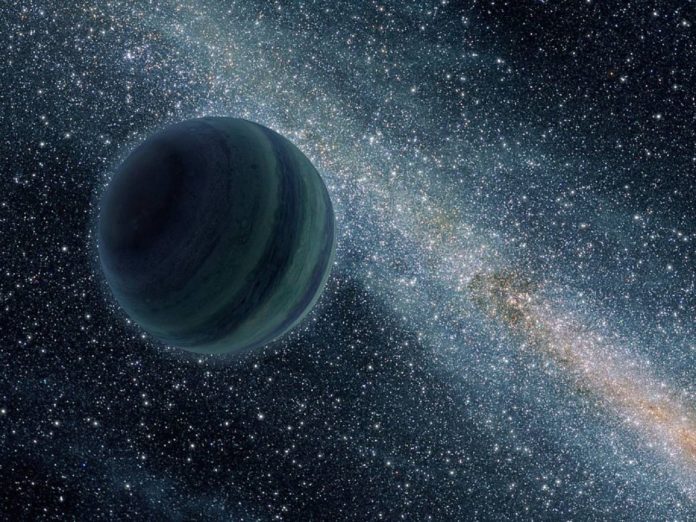While analyzing a planet survey called Microlensing Observations in Astrophysics (MOA), scientists identified a Jupiter-size planetary body that floated freely through the galaxy.
This Jupiter-like exoplanet is the rogue planet that wanders alone in space without its parent star. Many astronomers believe that these planets are more common than we know but that our planet-finding techniques haven’t been up to the task of locating them.
The planet was identified indirectly as it just happens to pass in front of a more distant star, causing the star to brighten. The effect is like a cosmic funhouse mirror or magnifying lens – light from the background star is warped and amplified, becoming brighter.
Using the latest technology, NASA’s Nancy Grace Roman Space Telescope will survey to discover many more exoplanets using powerful techniques available to a wide-field telescope.
